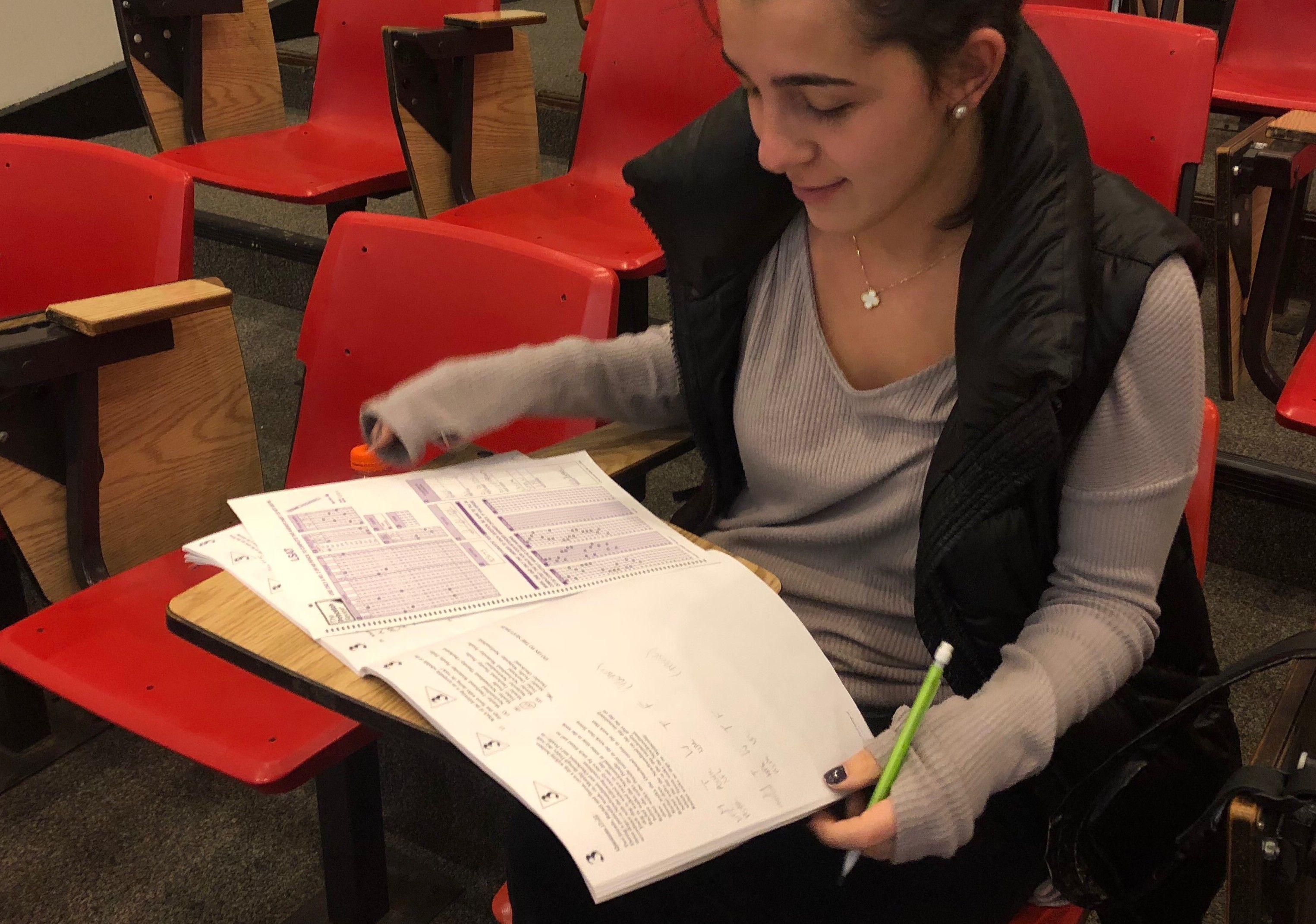Starting next year, prospective law students will have to take the LSAT on the computer, according to the nonprofit group that administers the test.
The Law School Admissions Council announced in October that the Law School Admission Test will be transitioning to a digital platform, beginning with its July 15 exam. However, only some of those taking the July test will use the new format, while others will still use paper and pencil, according to an Oct. 3 news release.
The LSAC plans for the exam to be fully digital by September 2019, the release said.
[Read more: Though fewer students are applying to law school, UMD remains a top feeder]
To ease the adjustment to the new format, test-takers will be able to see their scores before canceling them, an opportunity not previously offered to test takers, said University of Maryland pre-law advisor Greg Shaffer. Students who decide they don’t like their scores can cancel them and retake the exam for free in the same testing cycle.
“The July test-takers, whether they take it on paper or on a tablet, will be able to cancel their scores after they’ve seen them, which is unheard of,” Shaffer said. “A lot of this is in response to the GRE becoming a bigger and bigger player in the law school admissions game. There’s been a push to be able to provide the [LSAT] more often.”
More than 100,000 people took the LSAT each year between 1987 and 2014, according to the LSAC.
[Read more: Law school creates cybersecurity, patent law specializations in program]
Students taking the test next year, especially those who have already been studying for a paper-and-pencil exam, have expressed concerns over the transition to digital.
Alex Tobin, a senior government and politics major who tutors LSAT prep courses, said the new format could pose difficulties for students who have been preparing for the paper exam or aren’t comfortable with technologically administered tests.
“I think the logic games section is going to become a completely different animal,” Tobin said, “Space with logic games is crucial … You’re drawing lots of diagrams. What kind of space is going to be provided to students? If you’re a highlighter and highlight passages, it might be harder.”
However, Tobin said he is in favor of the changes overall because it modernizes the test, especially by increasing accessibility.
“It’s going to increase LSAT scores by a little bit because people are taking it more often and have more chances to retake it,” Tobin said. “You might get more people applying to law schools. … It’s bringing the LSAT in line with most standardized tests.
Paige Gorodetzky, a junior criminology and criminal justice major, is already studying to take the LSAT. She said she is not inclined to take it in its new format because she is so used to paper tests.
“I don’t think I would do well and be able to focus,” Gorodetzky said. “I think that I would focus better on a paper test.”
Though some students are concerned about the future changes, Shaffer reiterated that the exam’s content will not be changing, only its delivery.
“Students are more anxious than anything, but once they recognize that the exam itself isn’t going to be any different, they’ll treat it as an almost non-issue,” Shaffer said. “I like to think in a year or so, once everyone’s taken it, it’ll be just like the paper-and-pencil exam — the way it’s been for years.”



